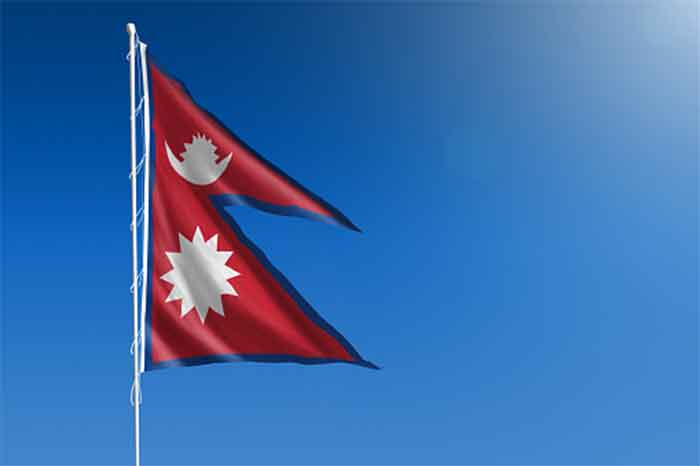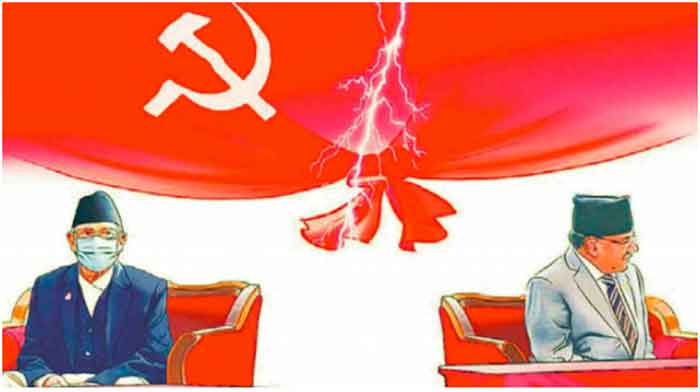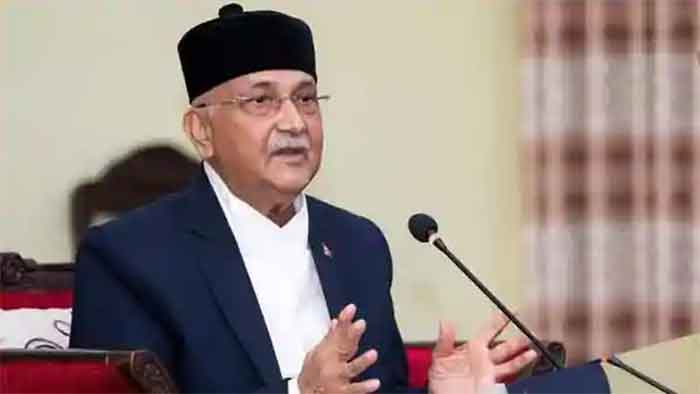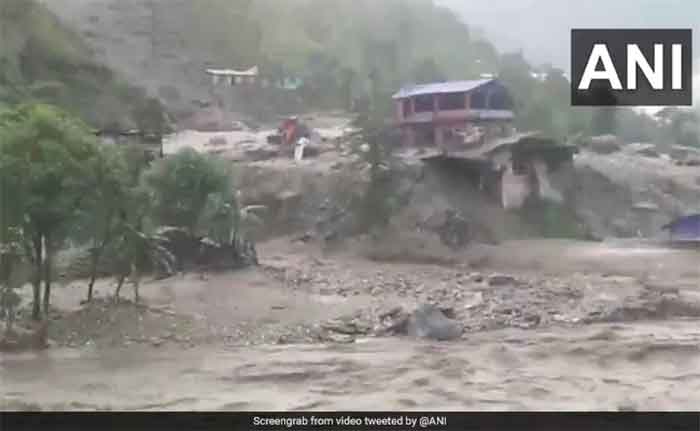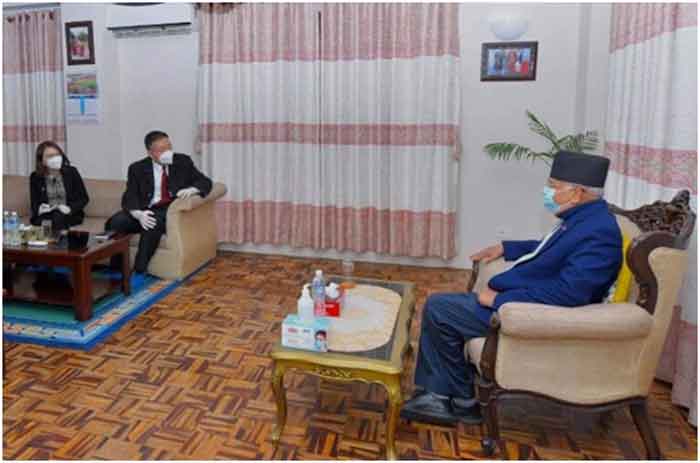
The route India took has been bullying and it ultimately isolated India. By treating Nepali politicians as shabby buffoons to be pampered one day and collared another day, India badly exposed itself. A belief got entrenched in the Nepalese mind that we are a dangerous neighbour with evil intentions, undependable and far too self-centred and cynical. Tragically, this was despite all the unique advantages India enjoyed as Nepal’s indispensable neighbour.
There can be no two opinions that China has huge stakes in Nepal’s stability. The leitmotif of the visit to Kathmandu by the delegation from the Chinese Communist Party Central Committee led by the vice-minister of the international department of the Central Committee Guo Yenzhou needs no explanation.
Historically, external powers have used Nepal’s porous border to stage covert operations in Tibet to destabilise China. Tibet has radically transformed in the past several decades and if foreign interference continues, as evident from the latest move by the US to legislate the Tibetan Policy and Support Act, it stems from Washington’s containment strategy toward China.
Beijing will not brook such interference and is seeking out like-minded countries that have experienced the bitter lemons of American exceptionalism. President Xi Jinping’s telephone conversation with Russian President Vladimir Putin on Dec 28 Monday testifies to the two countries’ firm support for each other on issues concerning each other’s ‘core interests’. A subsequent commentary by Xinhua speaks for itself.
To be sure, the CCP delegation’s visit to Nepal has a big backdrop, although Indian analysts with their tunnel vision and zero-sum mindset don’t wish to see it. The delegation travelled to Kathmandu on a ‘damage control’ mission.
The following elements stand out: China rejects the easy route of ‘divide and rule’ to take advantage of the political and constitutional crisis in Kathmandu. Nor is it prescriptive. The CPC delegation has instead tapped the vast reservoir of goodwill that exists in Nepal toward China to consult all protagonists on the political and ideological spectrum, including the non-communist Nepali Congress, the main opposition party.
Actually, at a meeting on Dec 29 Tuesday, the visiting delegation transmitted a personal invitation from President Xi to the Nepali Congress President Sher Bahadur Deuba to visit China as an honoured guest to participate in the historic centenary celebrations of the Chinese Communist Party next year. It is a breathtaking gesture.
Deuba’s aides cited him as accepting the invitation and responding that the friendship between Nepali Congress and the Communist Party of China goes back decades and nurtured since the premiership of BP Koirala, the founding leader of the party.
The Indian analysts should make a careful note that the Nepalese political class has welcomed the CCP delegation’s goodwill mission. It is both a moment of truth and of introspection for India’s policymakers. Ideally, the CPC delegation might as well have been Yogi Adityanath’s or Nitish Kumar’s mission. How come India lost the plot in its vital relationship with Nepal? What went wrong? Who is at fault? How can India regain its footing?
Fundamentally, India needs to think through its regional strategies. India needs a stable environment for its own development. A neighbourhood of unstable, insecure states is not in India’s interests. Therefore, regional stability ought to be the top priority. But India aspires to be a regional power. Now, that aspiration entails India’s acceptability, which is directly related to its good-neighbourly policies and its success in projecting itself as an attractive finished product.
To comprehend the interconnection between all these elements, Pakistan’s analogy can be useful. Pakistan wasted several decades in its obsession with India’s rise. It neglected rare opportunities to make good in life, frittered away resources and lost its sense of priorities in what ultimately turned out to be a wasteful and futile enterprise to debilitate a big neighbour that was much stronger in comprehensive national power.
Suffice to say, paranoia can cause self-inflicted wounds. The Chinese mission to Kathmandu must be dispassionately assessed. The Foreign Ministry spokesman Zhao Lijian said in Beijing, “For a long time, the Communist Party of China has maintained close and friendly exchanges with the major political parties in Nepal, which has played a positive role in enhancing political mutual trust, deepening mutual learning of state governance, promoting cooperation, and consolidating traditional friendship.”
On the contrary, the route India took has been bullying and it ultimately isolated India. By treating Nepali politicians as shabby buffoons to be pampered one day and collared another day, India badly exposed itself. A belief got entrenched in the Nepalese mind that we are a dangerous neighbour with evil intentions, undependable and far too self-centred and cynical. Tragically, this was despite all the unique advantages India enjoyed as Nepal’s indispensable neighbour.
Schadenfruede, as Germans call it — deriving vicarious pleasure out of someone else’s misfortune — is never a good thing, be it in the life of an individual or a nation, especially for an ancient civilisation like India with a tumultuous history of moments of shame, humiliation and sorrows as much as success, glory and triumph.
Now, there is no certainty that the Chinese mission will be an enduring success. Time will tell. Spokesman Zhao summed up the mission this way: “As the country’s friend and close neighbour, we hope relevant parties in Nepal can take into account the national interests and the big picture, properly manage internal differences and commit themselves to political stability and national development.” It is an unpretentious mission focused on Nepal’s stability.
Intra-party feuds involving personality clashes, vaulting ambitions and sheer lust for power are hard to mediate. When it comes to a communist party, that is even more so. The Chinese commentators have noted that ‘the disputes seem unlikely to be resolved anytime soon’, as the two key figures K.P. Sharma Oli and Pushpa Kamal Dahal ‘refuse to budge.’ The gloomy prognosis is that Nepal ‘may fall into political instability once again only after just two years.’
The Chinese commentators acknowledge that the merger of the two communist parties in 2018 (where China played a role) ‘has not yet been fully realised’ and a split may well ensue, which of course, will be detrimental to Nepal’s political stability and the future of the communist movement itself. All the same, another election can only produce a hung parliament and that means Nepal will lapse back to coalition politics and the era of defections and chronic instability may return.
Beijing does not have false hopes. Having said that, the tidings since Sunday when the CPC delegation arrived in Kathmandu show some positive signs. At a 2-hour meeting with the Chinese delegation, Prime Minister Oli has been cited as saying that Nepal and China have promoted and strengthened the bilateral relations to a new height in recent years and China has been supporting Nepal as a close neighbour and a friend of Nepal.
Across the political spectrum, there is overwhelming appreciation that Nepal needs Chinese support and assistance.
Equally, the communist factions in Nepal hold the CPC in high esteem and the two sides have enjoyed excellent relations. Thus, communist leader Madhav Kumar Nepal’s remarks yesterday are of interest when he said that a split in the Nepal Communist Party can be averted and the rival faction is ‘ready to forget everything’ if Oli accepts his mistakes.
Make no mistake, while Dahal is reputed to be a mercurial personality, he also has a rare capacity to be flexible. All things considered, the probability is that the Chinese mission may gain traction. It has a creative underpinning in the consensus among the Nepali political elite that the country can ill afford a mid-term election.
Nepal’s economy has fared relatively well in the past two years and even in the conditions of the pandemic, the momentum is not lost. The foreign exchange reserves have gone up, exports are doing well, remittances from abroad remain substantial and current account position is no longer in deficit. The Nepalese elites are aware that China’s goodwill and continued help can make a critical difference.
Ambassador M K Bhadrakumar served the Indian Foreign Service for more than 29 years. He introduces about himself thus: “Roughly half of the 3 decades of my diplomatic career was devoted to assignments on the territories of the former Soviet Union and to Pakistan, Iran and Afghanistan. Other overseas postings included South Korea, Sri Lanka, Germany, and Turkey. I write mainly on Indian foreign policy and the affairs of the Middle East, Eurasia, Central Asia, South Asia and the Asia-Pacific…”
His mail ID : [email protected])
(Posted on December 30, 2020, in the author’s blog : indianpunchline.com
https://indianpunchline.com/chinas-mission-to-nepal-gains-traction/
IF YOU LIKED THE ARTICLE SUPPORT PEOPLE’S JOURNALISM


